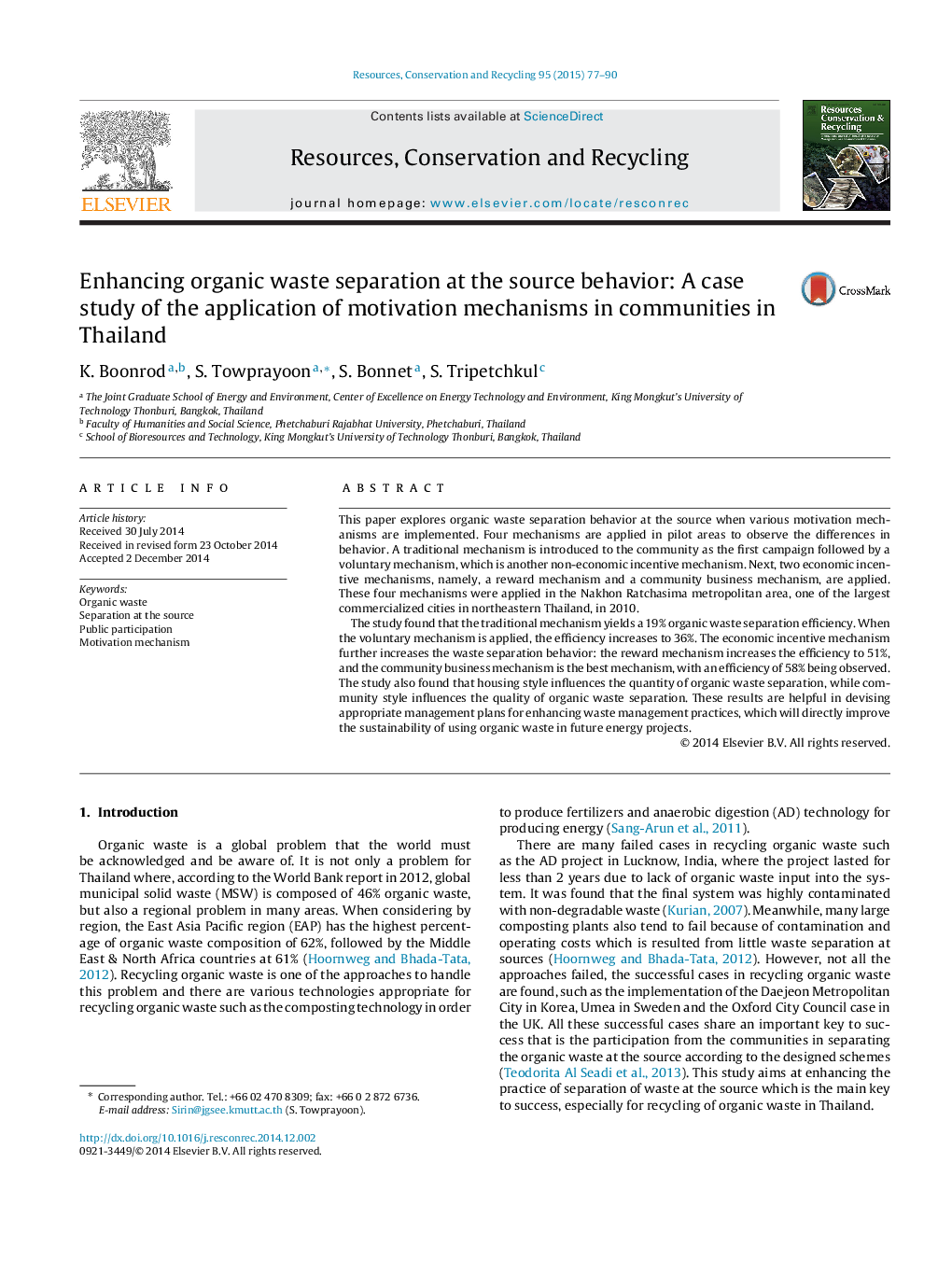| Article ID | Journal | Published Year | Pages | File Type |
|---|---|---|---|---|
| 7495207 | Resources, Conservation and Recycling | 2015 | 14 Pages |
Abstract
The study found that the traditional mechanism yields a 19% organic waste separation efficiency. When the voluntary mechanism is applied, the efficiency increases to 36%. The economic incentive mechanism further increases the waste separation behavior: the reward mechanism increases the efficiency to 51%, and the community business mechanism is the best mechanism, with an efficiency of 58% being observed. The study also found that housing style influences the quantity of organic waste separation, while community style influences the quality of organic waste separation. These results are helpful in devising appropriate management plans for enhancing waste management practices, which will directly improve the sustainability of using organic waste in future energy projects.
Keywords
Related Topics
Physical Sciences and Engineering
Energy
Renewable Energy, Sustainability and the Environment
Authors
K. Boonrod, S. Towprayoon, S. Bonnet, S. Tripetchkul,
